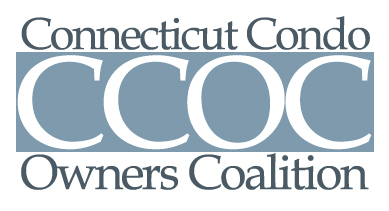Articles By Atty George Coppolo
CCOC Mourns Passing Of Rep. Mary Fritz
CCOC was very saddened about the recent death of representative Mary Fritz who represented the towns of Cheshire and Wallingford in the 90th House District. Representative Fritz served in the Connecticut General Assembly for 32 years. Representative Fritz was very supportive of CCOC and condominium unit owners and we considered her to be a friend.
Legislation to Establish a Pilot Program to Mediate Condominium Disputes
CCOC has worked very hard during the past several years to try to get legislation passed that gives unit owners a quick and much less expensive alternative to filling a lawsuit against the Association in Superior Court. Unfortunately, primarily because of state budget problems in recent years, we have been unsuccessful. This year CCOC presented
Ask Atty. George: How Much Power Do Boards Of Directors Have In Setting Rules?
RULES AFFECTING UNIT OWNER BEHAVIORS Clients often ask whether their Condominium can adopt and enforce rules that affect how unit owners behave in the common elements and even in their own unit. Section 47-244(a)(1) of the Connecticut Common Interest Ownership Act (CIOA) gives the Unit Owners Association the power to adopt and amend rules and
Ask Atty George: Can A Condo Association Meeting Be Held Without An Actual Meeting?
A client recently asked me whether the Association of Unit Owners must hold a meeting in order to vote either on issues, or on electing or removing directors from office. This is another instance where one has to carefully examine the law (Common Interest Ownership Act (CIOA) as well as the Declaration and Bylaws because
Ask Atty. George: What Does It Mean To Vote By Proxy
In my practice I am often asked about proxy voting. A proxy is a document executed by a unit owner that grants to another person the owner’s right to vote in the Association. Unit owners often want to vote by proxy because it is difficulty or impossible to attend the Association meeting or because they would
Ask Atty. George: Do State Condo Laws Apply To Coops?
Atty. George: As an owner in a cooperative in Connecticut, can you tell me if the Connecticut Common Interest Ownership Act applies to us? The Common Interest Ownership Act covers cooperatives (CIOA, CGS 47-202 through 47- 299). The rights and protections the Act gives to Condominium unit owners it gives equally to Cooperative unit owners.
Connecticut Now Requiring Condo Property Managers To Pass Competency Tests
Connecticut state laws, for the first time, requires Connecticut condo property managers to take educational courses and pass examinations to allow them to continue working as a property manager. Property managers for Condominium Associations and other types of Common Interest Communities were already required to register with the state Department of Consumer Protection. A recently
What Records Does A Declarant Have To Provide To Unit Owners
A client recently called me to ask whether the Declarant (person or entity that created the condominium) has any legal duty to inform unit owners about the financial status of the condominium during the period the Declarant controls the board of directors, and after the Declarant relinquishes control to the other unit owners. Declarant Control
General Assembly Passes Three Important Condo Bills In Connecticut
The Legislature passed three condominium-related bills during its 2013 Regular Session that ended at midnight on June 5th (PA 13-156, sHB 6662; HB 6477; and HB 6513) As of now only one of the three has been given a public act number and they await the governor’s signature. PA 13-156 expands the priority lien associations
Update On Pending Condo Legislation In The General Assembly
The Judiciary Committee voted the following four condominium-related bills out of committee last month. They await action by the full House and Senate. Senate Bill 1103 makes it easier for boards to borrow money secured by the Association’s right to future income (common charges) by making the loan effective unless at least a majority of




